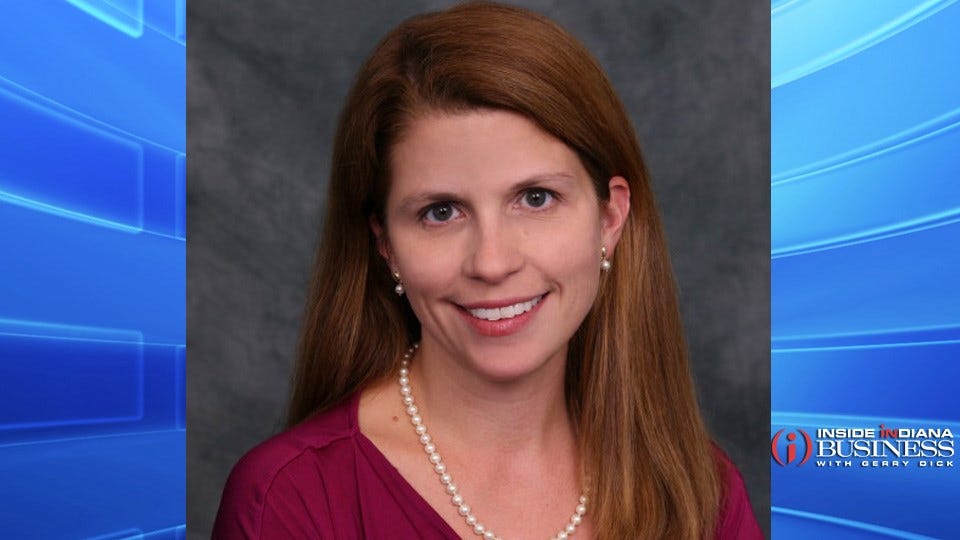Innovating takes much more than discovering an idea to commercialize

Subscriber Benefit
As a subscriber you can listen to articles at work, in the car, or while you work out. Subscribe NowAs a nursing home physician and researcher, my passion is improving systems of care for people in nursing homes. Since I started my faculty position in the IU School of Medicine and Regenstrief Institute eight years ago, I have had tremendous opportunities to partner with colleagues across the community, industry and state government on a number of initiatives. One of these, the OPTIMISTIC (Optimizing Patient Transfers, Impacting Medical Quality, Improving Symptoms: Transforming Institutional Care) clinical demonstration project, has been particularly exciting and helped me catapult an idea into a promising healthcare startup.
OPTIMISTIC is an ongoing $30.3 million Centers for Medicare and Medicaid Services (CMS) project which allowed us to create novel clinical roles in the nursing facility – embedded additional resources to support residents, families and front-line clinical staff. The goal of the project is to reduce avoidable transfers back and forth to the hospital from the nursing home – widely seen as indicator of poor quality care. An external evaluation of our clinical model found our partner facilities reduced avoidable hospital transfers by a third compared to control facilities in Indiana. Given the rich resources developed in this project, the extensive implementation experience of our team, and our proven results, I am eager to disseminate this clinical care model as widely as I can.
As a result, a year ago, I founded – Probari (formerly Care Revolution, Inc). This threw me into uncharted territory of fundraising, sales strategy, value propositions and whatever it takes to make a startup thrive. I would not have known where to start without quickly being connected with advisors, who became our Board of Directors, and the support of Indiana University and Regenstrief Institute. The hurdles of transforming an academic project into a commercial product can’t be underestimated, but can be jumped with well-timed resources and support.
We are working with our first two customers, both out-of-state, to implement the OPTIMISTIC clinical model. Our clinical model addresses many of the underlying reasons that nursing home patients shuttle back and forth to the hospital, including prompt recognition of a change in status, clear communication strategies among stakeholders, best practice care for acute conditions, structured advance care planning and detailed root cause analyses for every transfer that does occur. Today, we can provide facilities consultation, technical assistance and ongoing implementation support. Our web-based platform enables the people in specialized roles to manage their workflow and allows tracking of results. Additionally, we are developing a software application that will include clinical decision support tools for the RN at the bedside.
As a physician and a scientist, I thrive in discovery, development and innovation. But launching a startup takes much more, including key areas of support in business development, management, sales, marketing and more. Critical gaps where many life sciences startups need additional support include:
- -business strategy
- -timing and amounts and type of fundraising
- -product line development, particularly as we move into more software development to support our business scalability
- -identifying customers in a systematic, strategic way
My timing has been fortunate in that the life sciences community in Indiana saw a need to help support entrepreneurs and innovators like me by creating a mentoring program – Accelerating Innovation IN Science, or AXIS. The new program is pairing experienced mentors with start-up founders and CEOs to support, grow and drive innovation forward. I’ve been paired with an experienced group of mentors who have significant industry, startup and academic institution knowledge and are providing tailored, experienced, objective guidance and insights to my team and me. We meet every four to six weeks to focus on immediate challenges we are facing and brainstorm solutions by leveraging the deep and broad experiences of the team. If Indiana wants to continue momentum in healthcare and life sciences, programs like Axis will promote an environment in which entrepreneurs like me can bridge gaps and succeed.
I’m excited for what the future holds and am optimistic that I will continue to develop the skill sets necessary to lead this company towards a sustainable future. I firmly believe in the urgency of continuing to support and evolve our long term care systems to support people with physical disabilities and dementia and that our company can play a role in this positive change with the help of the entire village.
Dr. Kathleen Unroe is the founder of Probari (formerly Care Revolution, Inc.) and an associate professor of medicine at the IU School of Medicine.
